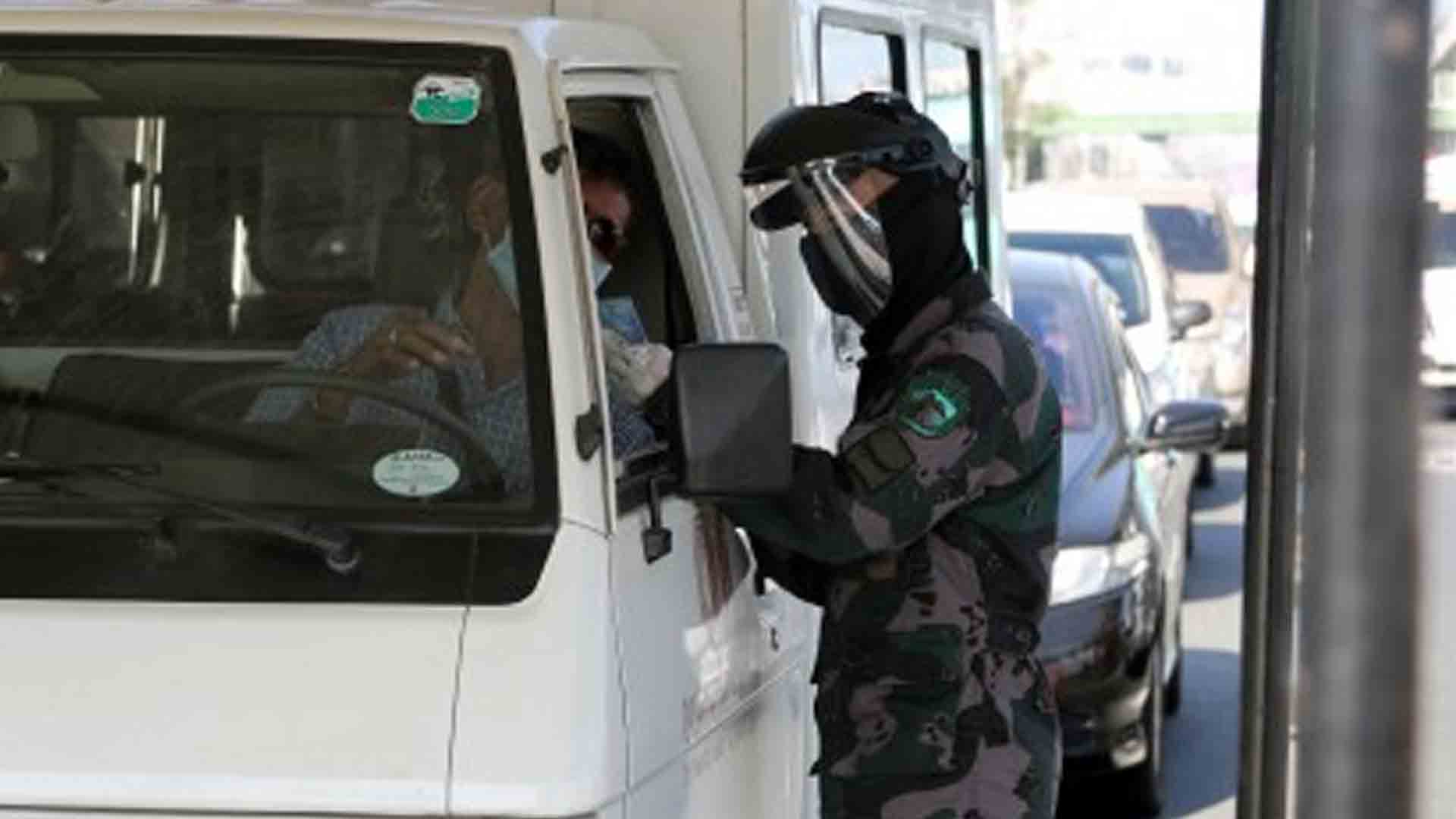The Philippine National Police (PNP) has established checkpoints in strategic areas of the so-called “NCR plus” that include Metro Manila, Bulacan, Cavite, Laguna and Rizal, and nearby provinces bordering them.
In an interview with GMA’s “Unang Hirit” Monday, PNP spokesperson Brig. Gen. Ildebrandi Usana said the border control would be enforced by checkpoints inside and outside the boundaries of areas under general community quarantine (GCQ).
“Ang outbreak region po actually ay nasa NCR. Minarapat ng national government na lakihan pa ‘yung spread ng boundary hanggang doon sa apat na provinces para merong containment (The outbreak region is actually in NCR. The national government decided to expand the boundary to these four provinces to contain the spread of the disease),” he said.
The four provinces under Region 4-A are placed under general community quarantine, joining Metro Manila, from March 22 to April 4, to limit the spread of coronavirus infections.
Under this status, only essential workers from non-GCQ areas are allowed to enter but they would need to present identification to prove that they belong under the list of workers allowed to travel.
“‘Yung boundaries ng ‘NCR plus’, doon sa strategic areas kung saan nandoon ‘yung boundary ilo-locate ‘yung checkpoint. Now outside the boundary meron din po ‘yung border control kung sino po ‘yung papasok sa ‘NCR plus’. So kung sila ay essential worker definitely sila ay papayagan pero kapag non-essential workers sasabihan lang po yung papasok na bumalik na po (Checkpoints are set up in NCR boundaries and strategic areas. Outside the boundaries, we have border control, so we can check who are entering NCR plus. If they are essential workers, they are allowed to enter but if not, they would have to go back),” Usana said.
Usana said the protocols in checkpoints have been in place and police would just coordinate with local government units for adjustment on the restrictions.
As the Holy Week approaches, Usana urged the public to hold off their vacation plans and instead stay at home to curb the spread of the coronavirus. Under the new general community quarantine restrictions, Bulacan, Cavite, Laguna and Rizal will be joining Metro Manila under the GCQ classification.
Under the Inter-Agency Task Force Resolution No. 104, only essential travel into and out of Metro Manila, Bulacan, Cavite, Laguna, Rizal will be allowed. Called a “travel bubble”, residents will only be allowed to travel within their respective provinces.
During the Laging Handa briefing, Interior undersecretary and spokesperson Jonathan Malaya said even though there is no border control between Metro Manila and the four provinces, the public is still “highly discouraged” to go out.
“We highly discourage it, stay at home muna tayo (Let’s stay home). Tulungan niyo po ang pamahalaan para mapababa natin itong surge na ito dahil kapag hindi na makayanan ng healthcare system itong numero na mga Covid positives natin baka magka hard lockdown na po tayo at ayaw na po natin mangyari ang hard lockdown (Help the government to lower the number of cases because once the healthcare system capacity can no longer handle, we might have a hard lockdown and we don’t want that to happen),” he said.
Meantime, the Department of Transportation said while transport to and from these areas is restricted, public transport policies still apply, including the 30-40 percent loading capacity for railways and 75 percent for public utility vehicles such as jeepneys and buses.
“Hindi magbabago ang kasalukuyang ipinatutupad na transport capacity sa mga pampublikong transportasyon. Hinihikayat ang publiko na magbisikleta o maglakad (Current transport capacity in public transportation will not change. We ask the public to bike or walk instead),” the DOTr said in a statement.
Public transport commuters are reminded of the health protocols such as wearing of face mask and shield, no talking, no eating, ensuring proper ventilation in public utility vehicles, regular disinfection, barring those with Covid-19 symptoms from boarding, and observing “appropriate” physical distancing.
Those below 18 years old and those 65 years old and above are advised to stay at home, as well as the immunodeficient, those feeling sick or with other health risks, and those pregnant.
“Maliban na lamang kung ang pagbiyahe ay dahil sa mga hindi maiiwasang pagkakataon at dahilan gaya ng pagbili/pagkuha ng mga pangunahing pangangailangan o serbisyo, o kung may kaugnayan sa trabaho sa kani-kanilang industriya o opisina (Exemptions to this is if travel is necessary for reasons such as buying or receiving essential goods and services and work or industry-related travel),” the DOTr said.
Domestic flights remain allowed in GCQ areas.
However, only “essential” travel is allowed in airports and for passengers considered an authorized person outside of residence.
“Hindi papayagan ang anumang leisure/tourist travels palabas at papasok sa mga GCQ areas, batay sa itinakdang petsa ng nasabing kautusan mula March 22 hanggang April 4, 2021 (Any leisure or tourist travels going from or to GCQ areas are not allowed from March 22 to April 4, 2021),” the DOTr said.
On Sunday, the Department of Health reported 7,757 new confirmed cases and 39 new deaths while 15,288 more patients recovered from Covid-19. (PNA)























